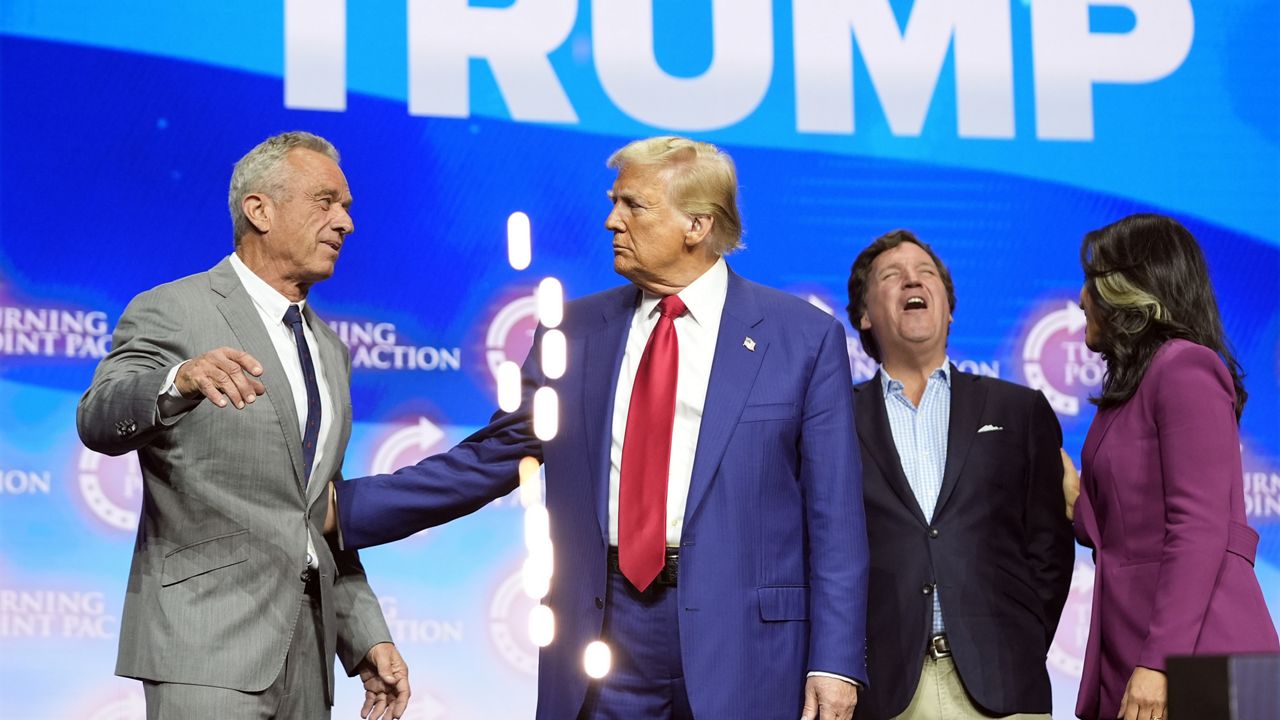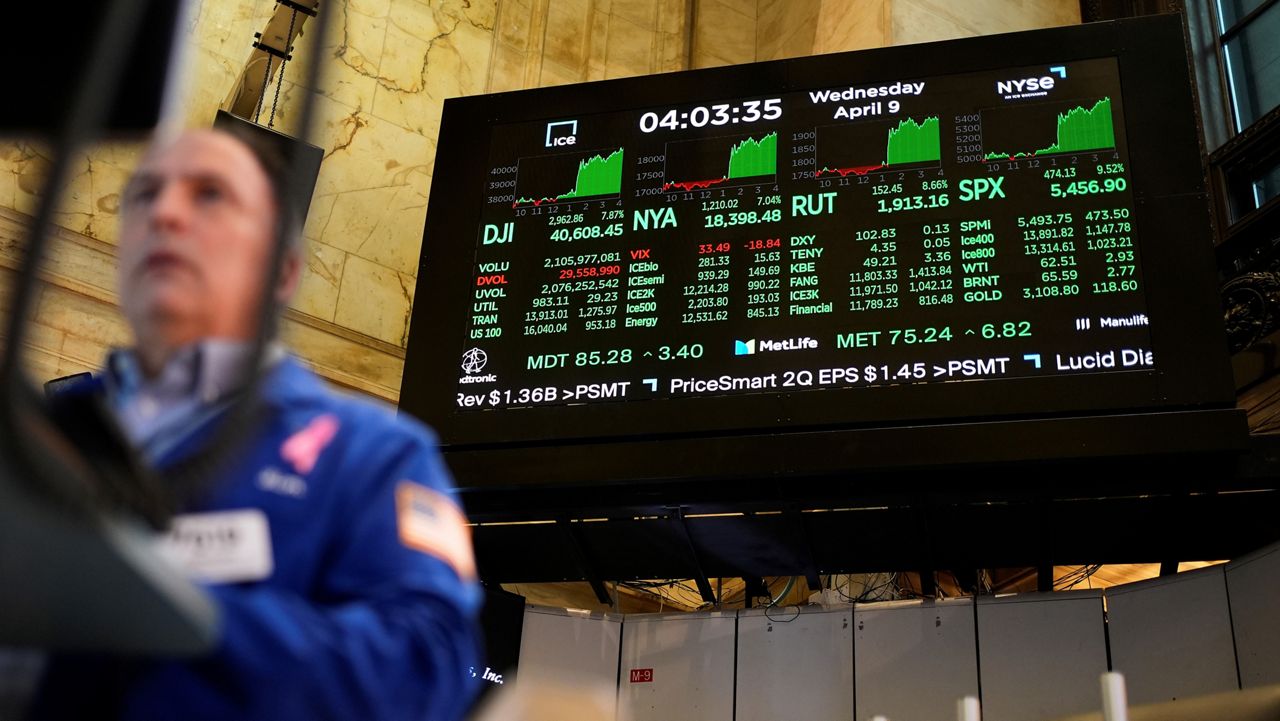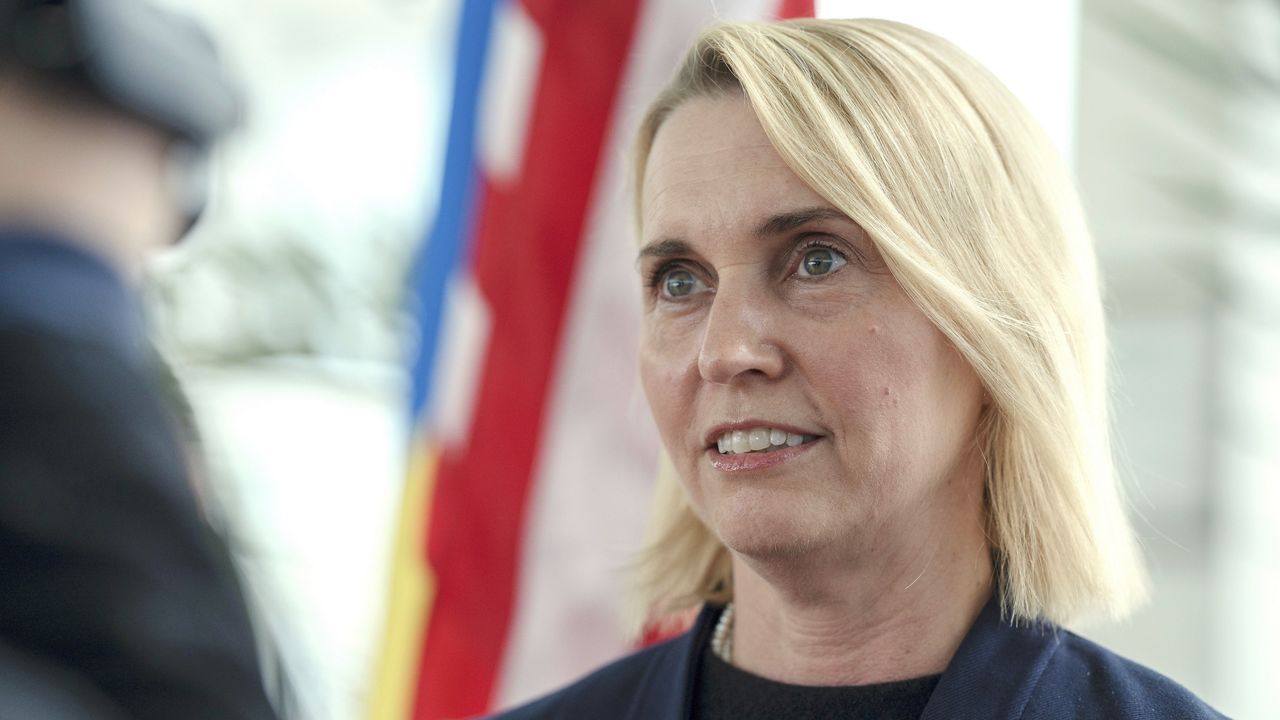WASHINGTON — After Defense Secretary Pete Hegseth narrowly avoided a confirmation defeat last week with Vice President JD Vance’s tiebreaking vote, President Donald Trump’s new administration is looking ahead to key Senate hearings this week for three of his most controversial nominees.
Roberty F. Kennedy Jr., the independent presidential candidate and anti-vaccine crusader who backed Trump in November's election, will kick off the week’s hearings in front of the Senate Finance Committee on Wednesday morning. Both the Finance Committee and the Health Committee oversee the Health and Human Services Department, which Kennedy has been tapped to lead. The Kennedy family scion and pariah will appear before the latter committee Thursday.
Kash Patel — Trump’s nominee for FBI director and a major advocate for wielding federal law enforcement against the president’s political enemies — will face members of the Judiciary Committee on Thursday. And former Hawaii Rep. Tulsi Gabbard, an ex-Democrat who has fully embraced Trump’s movement, will appear before the Senate’s Intelligence Committee on Thursday to make the case for her nomination as national intelligence director.
What You Need To Know
- President Donald Trump’s new administration is looking ahead to key Senate hearings this week for three of his most controversial nominees
- Roberty F. Kennedy Jr., the independent presidential candidate and anti-vaccine crusader who backed Trump in November's election, will kick off the week’s hearings in front of the Senate Finance Committee on Wednesday morning
- Kash Patel — Trump’s nominee for FBI director and a major advocate for wielding federal law enforcement against the president’s political enemies — will face members of the Judiciary Committee on Thursday
- And former Hawaii Rep. Tulsi Gabbard, a former Democrat who left the party in 2022 and fully embraced Trump’s movement, will appear before the Senate’s Intelligence Committee on Thursday to make the case for her nomination as national intelligence director
Republicans hold 53 seats in the Senate, meaning — with Vance’s tiebreaking vote — Trump’s nominees can afford to lose at most three GOP votes if the Democratic caucus uniformly votes against them. While some nominees have received bipartisan support, this next batch is unlikely to garner Democratic support.
Here’s what you need to know the hearings this week:
Robert F. Kennedy Jr., nominee for health and human services secretary
A purveyor of conspiracy theories and misinformation about vaccines and disease — he falsely claimed during his campaign that “COVID-19 is targeted to attack Caucasians and Black people. The people who are most immune are Ashkenazi Jews and Chinese” — Kennedy has made a series of “Make America Healthy Again” proposals that include banning or no longer recommending certain vaccines on the basis of false claims and removing fluoride from public water systems.
Democrats are most strongly dismayed by his baseless claims about vaccines — which local health officials, experts and Hawaii Gov. Josh Green said contributed to a deadly measles outbreak among infants and children on the island nation of Samoa in 2019 — and his personal life (he was accused of sexual assault by a former family babysitter and has opted not to deny the allegation).
But it’s his stances on abortion and food policy that may sink him with certain Republicans. Former Vice President Mike Pence’s organization has questioned whether Kennedy’s support for abortion access makes him a good fit in an anti-abortion administration. And Kennedy's opposition to corn syrup and pesticides — for a mix of fact-based and less-than-factual concerns about Americans’ diets — has some farmers in red states worried.
Kennedy has told Republican senators that he will defer to Trump’s abortion positions if confirmed. And Sen. Chuck Grassley, a Republican from corn-growing Iowa, said he was willing to “spend a lot of time educating him about agriculture.”
Kash Patel, nominee for FBI director
A Trump loyalist and former Justice Department official, Patel has been tapped to lead the FBI, which the president has viewed derisively due to its probe into his 2016 campaign and its role in his criminal federal prosecutions last year.
Patel has echoed Trump’s promises to prosecute and imprison political enemies and has publicly detailed how a second Trump administration could purge the government of the “deep state.” In his 2023 book “Government Gangsters,” he made a list of targets, including senior Democrats, current and former leaders of federal law enforcement, and intelligence agencies, lower-level staffers, “the entire fake news mafia press corps,” and former Trump staffers and allies who defected.
Democrats have sounded the alarm about Patel’s nomination. Illinois Sen. Dick Durbin warned Patel is “an unqualified loyalist” who was there to lead an “unprecedented effort to weaponize the FBI for the campaign of retribution that Donald Trump has promised.” California Sen. Adam Schiff wrote that Patel was “willing to do whatever Trump asks. Illegal, unethical or otherwise.”
Bill Barr, Trump’s attorney general for two years, wrote in his 2022 book that Trump wanted to appoint Patel deputy FBI director. Barr “categorically opposed” the move, citing Patel’s lack of law enforcement experience or experience running anything the size of the FBI’s 35,000-person agency.
“The very idea of moving Patel into a role like this showed a shocking detachment from reality,” Barr wrote.
Tulsi Gabbard, nominee for director of national intelligence
Once a Bernie Sanders Democrat who ran for president in 2020, Gabbard has spent the last few years aligning herself with the U.S. right and Trump. In exchange, Trump has tapped her to be one of the nation’s top intelligence officials. But her nomination is perhaps the most imperiled of any of Trump’s picks remaining.
Republicans hold nine of the 17 seats on the Senate Intelligence Committee, meaning just one GOP committee member voting against her nomination could stop it from reaching a vote of the whole Senate. The committee typically votes in private. Texas Sen. John Cornyn, a Republican committee member, told The Hill “I think the jury’s still out” on whether Gabbard will survive the committee vote.
Maine Sen. Susan Collins, a centrist Republican who voted against Hegseth last week, also told The Hill that there are “a lot of obvious issues” with Gabbard’s previous opposition to Section 702 of the Foreign Intelligence Surveillance Act. The law allows for warrantless surveillance of foreign nationals living outside of the United States.
Gabbard, an Army National Reserve lieutenant colonel who has deployed to Africa as recently as 2021, has also faced scrutiny for her 2017 meetings with Syrian dictator Bashir Assad and her skepticism that Assad used chemical weapons on his own people. And she has a history of bigoted comments targeting Muslims and the LGBTQ community, as well as ties to Hindu nationalists in the United States and India.
Other hearings this week
Former Georgia Sen. Kelly Loeffler, a GOP megadonor, is scheduled to appear in front of the Senate’s Small Business Committee on Wednesday morning for her nomination to lead the Small Business Administration. Loeffler, who was the richest member of Congress during her tenure, poured millions into Trump’s 2024 campaign.
Despite her efforts to pressure Georgia’s top election official to resign in 2020 over Trump’s loss and her initial support for the effort on Jan. 6, 2021, to undermine the certification of the Electoral College vote, Loeffler is expected to secure her nomination with ease. Republicans are supporting their former colleague and key Democrats on the Small Business Committee have indicated they will give her nomination consideration.
Other major nominees who have not had their hearings scheduled yet include former Oregon Rep. Lori Chavez-DeRemer (Labor Department), New York billionaire Howard Lutnick (Commerce Department) and longtime professional wrestling executive Linda McMahon (Education Department), another billionaire who led the Small Business Administration during Trump’s first term.










